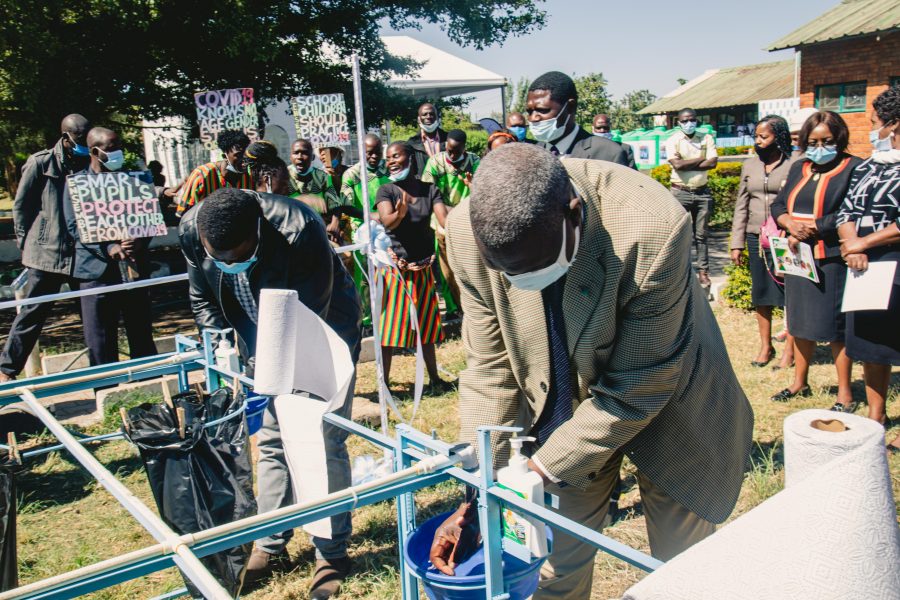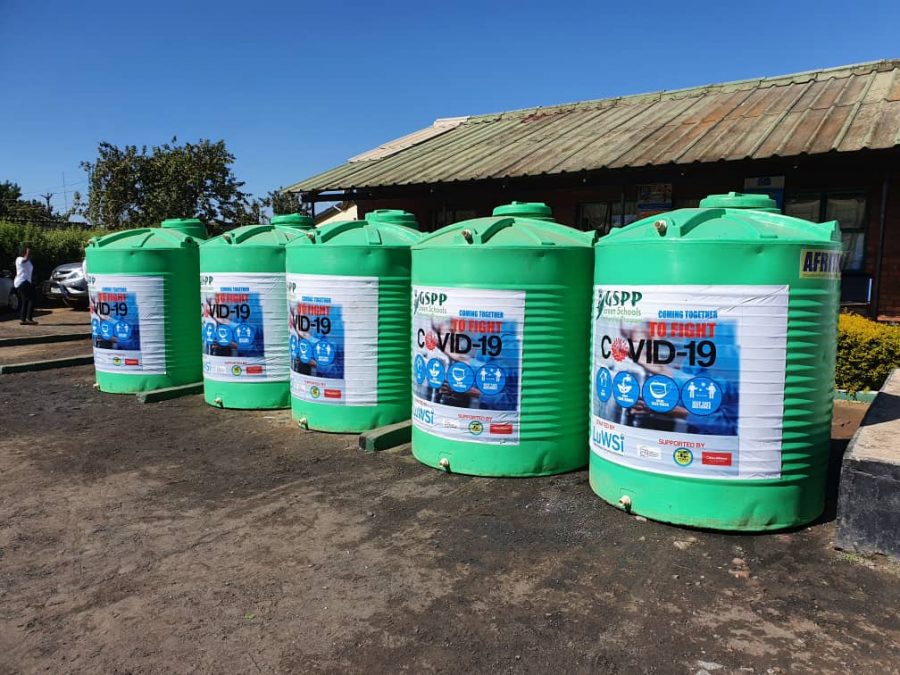Better WASH services in schools: Menstrual Hygiene Day and COVID-19

Copyright: NatuReS Zambia
Lack of access to proper menstrual hygiene services such as hand washing facilities can be an obstacle for girls to attend and participate in school. With the global COVID-19 pandemic, the need for hygiene and hand wash facilities in schools has been further enforced to prevent its spread.
To address this need, NatuReS Zambia, in collaboration with Lusaka Water Security Initiative, Lusaka City Council, the District Education Board, the Zambian Ministry of Health and Water Aid Zambia, officially handed over Jumbo Hand wash facilities to 58 schools under the Safe Back to School Campaign.
These Jumbo Wash stations allow many pupils to wash their hands at once, meeting the demand for handwashing facilities especially in overly populated schools in Lusaka’s most vulnerable communities. The stations contribute to a better provision with water, sanitation and hygiene services.

Copyright: NatuReS Zambia
The handover event took place on the 27th of May at Kasamba Combined school in Matero, Lusaka, as part of the world menstrual hygiene day commemoration. On this day, hygiene in general and the access for girls and women particularly to safe and clean hygiene facilities, is in the global focus. During the hand-over, five schools evaluated as best performers on WASH in schools guidelines, were awarded certificates. Each of these schools received a 10000-litre capacity water tank, chlorine, cleaning agents and materials, hand washing soap, sanitisers and face masks.
By improving access to sanitation in schools, the hurdle for pupils, especially girls, to regularly participate in class, is lowered. Creating safe and clean learning environments hence plays an important role in Zambia’s development.
Author: Sonile Mutafya, NatuReS Advisor Zambia